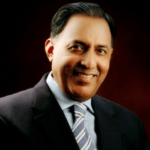I was waiting for a meeting with Dr Sen, chairman of a large conglomerate, at his office. The meeting was organised to discuss one of the CEOs within his Group who wanted to be coached.
Once someone decides to embark on the coaching journey, the process starts with chemistry meetings with a few coaches. I had already had a chemistry meeting with the CEO in question, Venkatesh. We had had a good meeting and hence, the introductory meeting with Sen!
Soon, his secretary informs me that Sen was ready to meet me.
Dr Sen looked older than his photo on the net. He was very calm and polite. We exchanged pleasantries, after which he asked me to share something about myself other that what was shared in my profile. I rattled off details about my coaching work, the coaching process and some of my corporate achievements, also mentioning some personal details.
He looked satisfied with what he heard. We moved on to discussing Venkatesh — the challenges Dr Sen saw in him and the shift he preferred to see in him.
Then he asked me, ‘Whom do you coach more, CEOs or CXOs?’ I replied, ‘CXOs’. His next questions was, ‘Why?’ I said, “As there are more CXOs than CEOs”. He laughed and said, “I agree”.
The meeting concluded with Sen announcing his pleasure at having me on board, to coach Venkatesh.
On my way back, I reflected on Sen’s questions – ‘Whom do I coach more?’
Does it make a difference? Does it change my coaching approach? As I have coached people across the hierarchy, I went over some of my coachee case studies. Interestingly, I realised that few coaching objectives continued to appear frequently.
The ones ranking high were improving active listening, delegation, interpersonal relationship, collaborative working and assertiveness.
If the coaching objectives are similar across hierarchies, then whom are we coaching? Is it the manager, CXO or CEO?
This thought made me think deeper. Is it designation or the person?
And, then it became clear to me that we are coaching the ‘being’ of the person who has a designation.
First, we help him find out where he is as a human being today. Then, we help him identify the shift he should make within him to become a more effective human being as demanded by his circumstances.
This brings us to the question. ‘Why is there a difference between the nature of the shift required from one person to another?’
The reason lies in the circumstances which have brought him to this position. All of us have gone through a series of influences, right from childhood that have left behind imprints and developed our worldview, our mind-set, attitude, behavioural patterns, and so on.
Some of these include, influence of parents, impact of education, teachers, sibling interactions, friends, and pressures from society, friends, peers and bosses in early stages.
The corporate world puts a different demand and accentuates a person’s mind-set, attitude and behaviour. This becomes more demanding if they are in a leadership position. To meet this demand, they must make a shift in these attributes. But how?
This is where the role of leadership coaching comes in.
We show the coachees the mirror, to make them realise what they look like today and how they should grow and develop themselves to achieve their objectives and look like ‘being’.
This shift is about themm and not about their position. It must come from within them. What will they do to bring this shift? What is the plan of action?
Focus must be on the individual and that is what decides the coaching approach.
So, does the designation change anything? What difference do I notice?
The main challenge I usually notice is that as the people go up the hierarchy, they become more obstinate, rigid in their ways and have an enlarged ego. This is because they have tasted success by behaving in a particular way. It is like deep engraving in a stone. This makes it more challenging to bring about a shift in mindset!
For this, the coach must connect at a deeper cognitive level to bring about a shift.
Therefore, a leader who is supposed to be actively listening and performing collective problem solving, becomes directive and does not delegate. His past success makes him think ‘I know it all’, and therefore, he starts providing solutions even if he has a team capable of giving better solutions. His ego comes in the way of collaborative working.
This and many such obstacles inhibit the team’s growth and subsequently his growth.
This is the time when either the person or the organisation seeks a coach’s help. The focus of the coach is the “being” of the person and not the designation. Designations may change but if the person has made the shift at the ‘being’ level, then it is long lasting.
From here, the coachee’s transformation journey begins.
Thanks to coaching, people from around the world have been able to surpass their limitations and achieve their personal and professional goals. Get ready to be inspired by true stories of profound change at experiencecoaching.com
If you need support on your organisation’s and/or leader’s coaching journey, do contact us at ICF and our team of professional coaches in India will be happy to help.
The International Coaching Federation (ICF) is the world’s largest organization leading the global advancement of the coaching profession and fostering coaching’s role as an integral part of a thriving society. Founded in 1995, its 40,000-plus members located in more than 145 countries and territories work toward common goals of enhancing awareness of coaching and upholding the integrity of the profession through lifelong learning and maintaining the highest ethical standards.
Through the work of its six unique family organisations, ICF empowers professional coaches, coaching clients, organisations, communities and the world through coaching.
In India, ICF is represented by six vibrant chapters, all led by volunteers — ICF Bengaluru, ICF Chennai, ICF Delhi NCR, ICF Mumbai, ICF Pune and ICF Hyderabad.
 The author, Pramod Gothi is a Master Certified Coach by the International Coach Federation (MCC), with more than 3,000 coaching hours under his belt. He possesses an unrivalled depth and breadth of coaching experience and has worked with entrepreneurs, CXOs and top teams across a wide range of industries from chemicals to banking. Gothih’s 38-year corporate career, spent mostly in leadership positions, allows him to have a highly empathetic and pragmatic approach to coaching. He is quick to connect with client situations and has strong skills of active listening, probing, challenging and identifying the blind spots.
The author, Pramod Gothi is a Master Certified Coach by the International Coach Federation (MCC), with more than 3,000 coaching hours under his belt. He possesses an unrivalled depth and breadth of coaching experience and has worked with entrepreneurs, CXOs and top teams across a wide range of industries from chemicals to banking. Gothih’s 38-year corporate career, spent mostly in leadership positions, allows him to have a highly empathetic and pragmatic approach to coaching. He is quick to connect with client situations and has strong skills of active listening, probing, challenging and identifying the blind spots.



2 Comments
Valuable insights form the world of coaching.
Excellent tips by pramod gothi on life skills .he has rightly listed right qualities for a Leadership ‘role .
Ability to listen is perhaps most needed specially for people at the top .